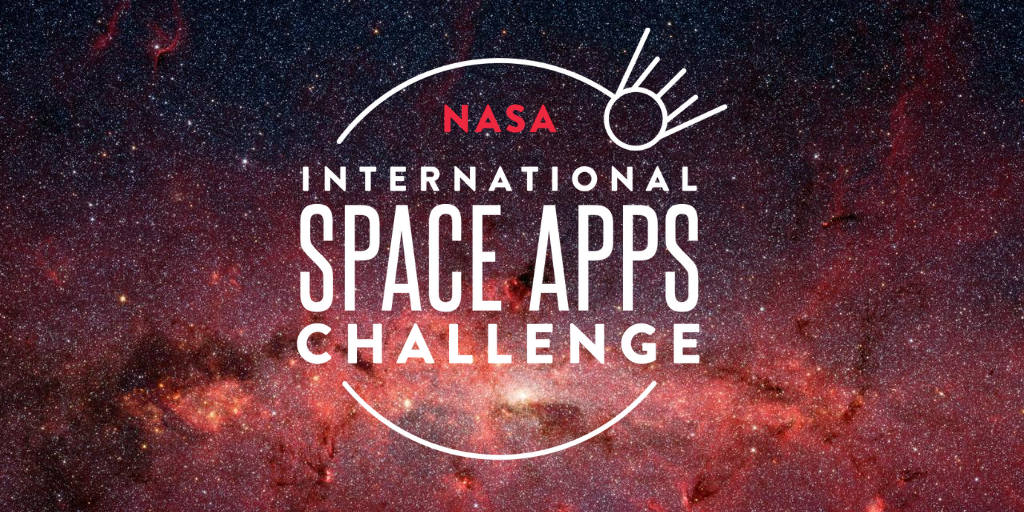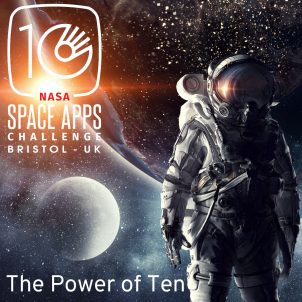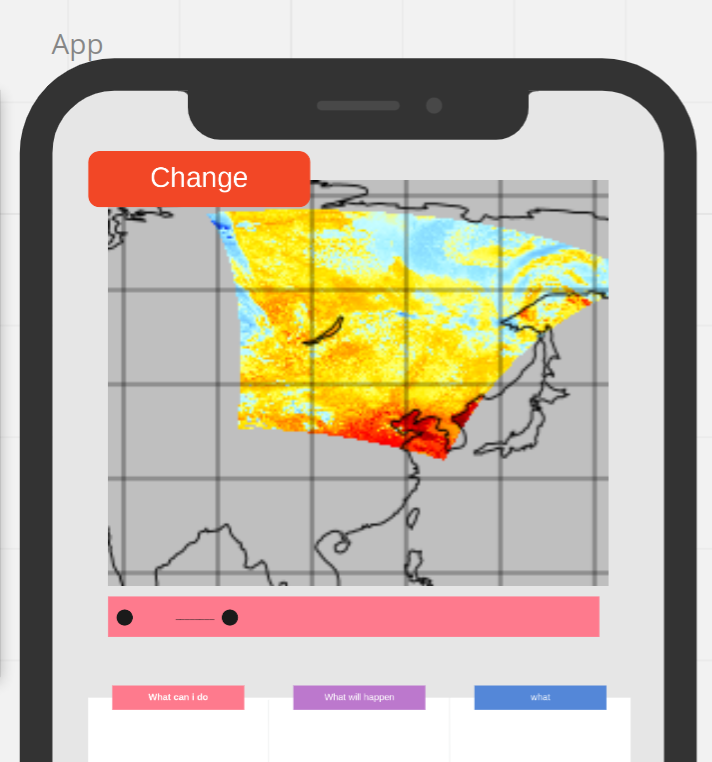Since 2012 NASA have sponsored the annual International Space Apps Challenge. The event runs over a weekend in October where teams from across the globe address challenges set by NASA. They have unique access to NASA expertise and offers from selected Global Collaborators.

DigiLocal has taken part since we hosted 15 young people at the 2019 event, in partnership with the UWE Space Exploration Society.
This year the Challenge topic was ‘Take Action’. It was also the first fully online and virtual event because of the Coronavirus pandemic. This meant that while we would be co-hosting the Bristol event again with the UWE Space Exploration Society, we would also be participating with the rest of the UK (and global) participants.
The event is not run as a ‘young persons’ event. There were two challenges designed for younger participants but there was no age bracketing for the judges when considering the final submissions.

Everyone joined the Discord server on Friday evening on the 2 Oct and began swapping ideas for which challenges they’d like to take part in. As teams began to form we made sure that all our young people were able to engage and participate, offering occasional ‘translation’ services for the acronyms and technical terms being used.
At 9am on Saturday 3 Oct the event officially launched in the UK with a special live stream video with the NASA Global Organisers.
From then it was a near constant stream of activity from idea storming with online collaborative whiteboard tools, to setting up and testing cloud computing resources, to producing the final presentation packs used for the judging. Teams had access to some fantastic offers from the Global Collaborators that included free credits on Google Cloud Platform, Amazon Web Services, Azure, and IBM.
At 5pm on Sunday 4 Oct we had 4 teams from DigiLocal presenting their ideas to the Bristol judges. We were honoured this year to have Prof Chris Toomer and Dr Yaseen Zaidi from the University of the West of England. Dr John Bradford from DigiLocal was the third judge.

Space Racers addressed the ‘Create a Mascot’ challenge with Gilda the Astronaut (coded in Scratch). A fun flamingo to introduce nebula, black holes, and other space phenomena! The Trapz built a game in roblox for the ‘Orbital Scrap Metal Game’ challenge. You were a stranded astronaut on Mars who had to clear a safe passage, and build new items, for an incoming rescue ship from Earth. Project Mars build a communications app to simulate the challenges of communicating with people on Mars, as part of the ‘Can you hear me now?’ challenge. This featured a variable time delay on messages so you could train how to react to situations, and experience the psychological challenges of a conversation with delays of between 4 and 24 minutes (depending on the positions of Earth and Mars).
BioEnterprise addressed the ‘Scanning for Lifeforms’ challenge. They proposed a game that would use satellite data to build a model of biodiversity change over time for different regions of the plant. They would then overlay this with business data to develop a model of how business actives impacted biodiversity. Players of the game would be able make business choices in a traditional business building game, but would see the predicted impact of those decisions on the biodiversity.
This would help inform them of how local decisions have global consequences.
Data was drawn from NOAA website and analysed in IBM DataPak, with visualisation using NASA’s own panopoly package. The plan was to work with the Watson Studio to develop the machine learning package but they ran out of time.
AerosOx were the fifth team from Bristol, comprising 2 post-grad researchers, a post-doc academic, an NHS Innovation Lead, and a business consultant. They tackled the ‘One Health Approach’ challenge by mapping air quality satellite data to prescribing for respiratory illnesses.
AerosOx and BioEnterprise were put forward for the Global Judging, with the final announcement in January 2021!
We wish both teams (but especially 13 yr old Thomas and 12 yr old Primrose from BioEnterprise) the very best of luck in the global judging.
Note:
Running a national, indeed an international, event online raises some serious safeguarding issues but in the months leading up to the event we discussed how to configure the Discord server so that we could provide young people with private and secure channels to use. We also ensured we had DBS cleared volunteers present and online throughout the event. A specific document was sent to all parents of potential young participants on how to configure the privacy setting on Discord. Finally, we issued a very clear Code of Conduct as part of the UK server that, while not specifically mentioning young people, made it very clear what was considered acceptable (and not acceptable) behaviour online.